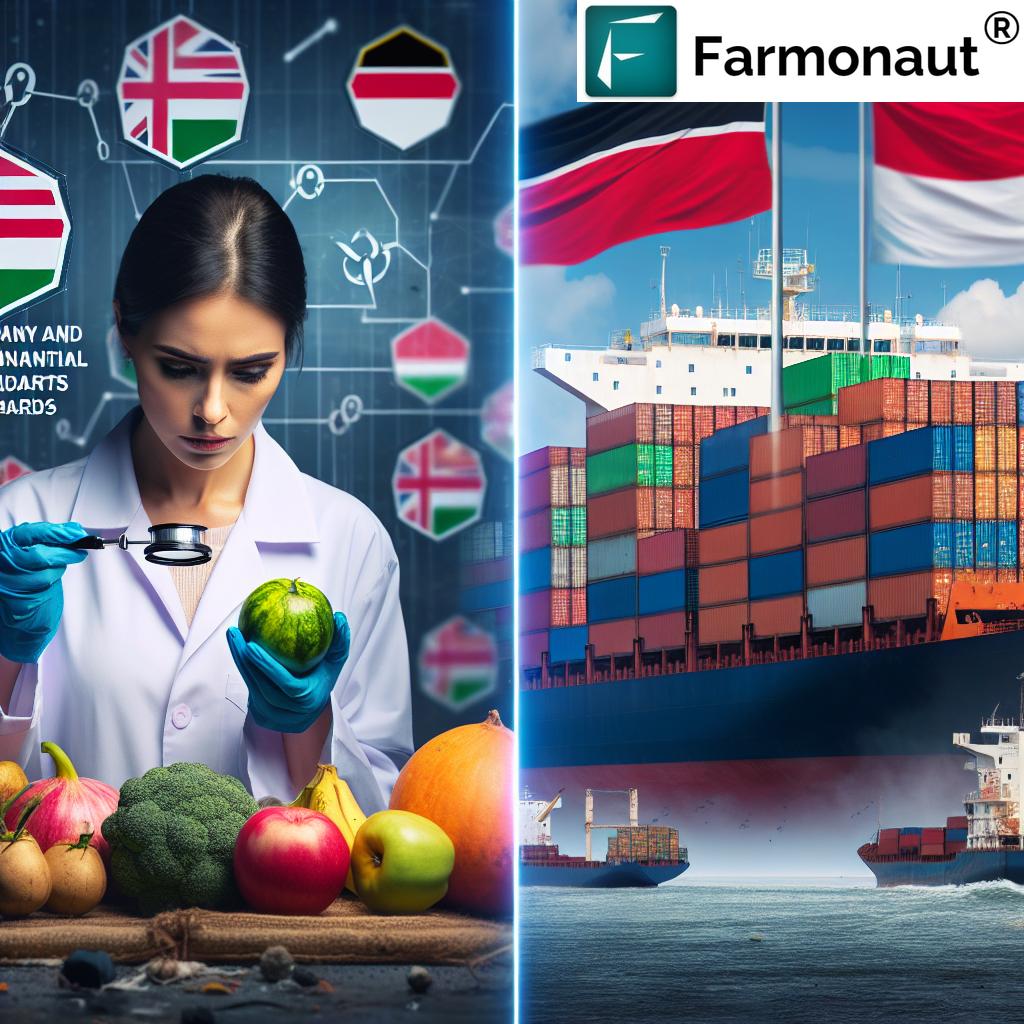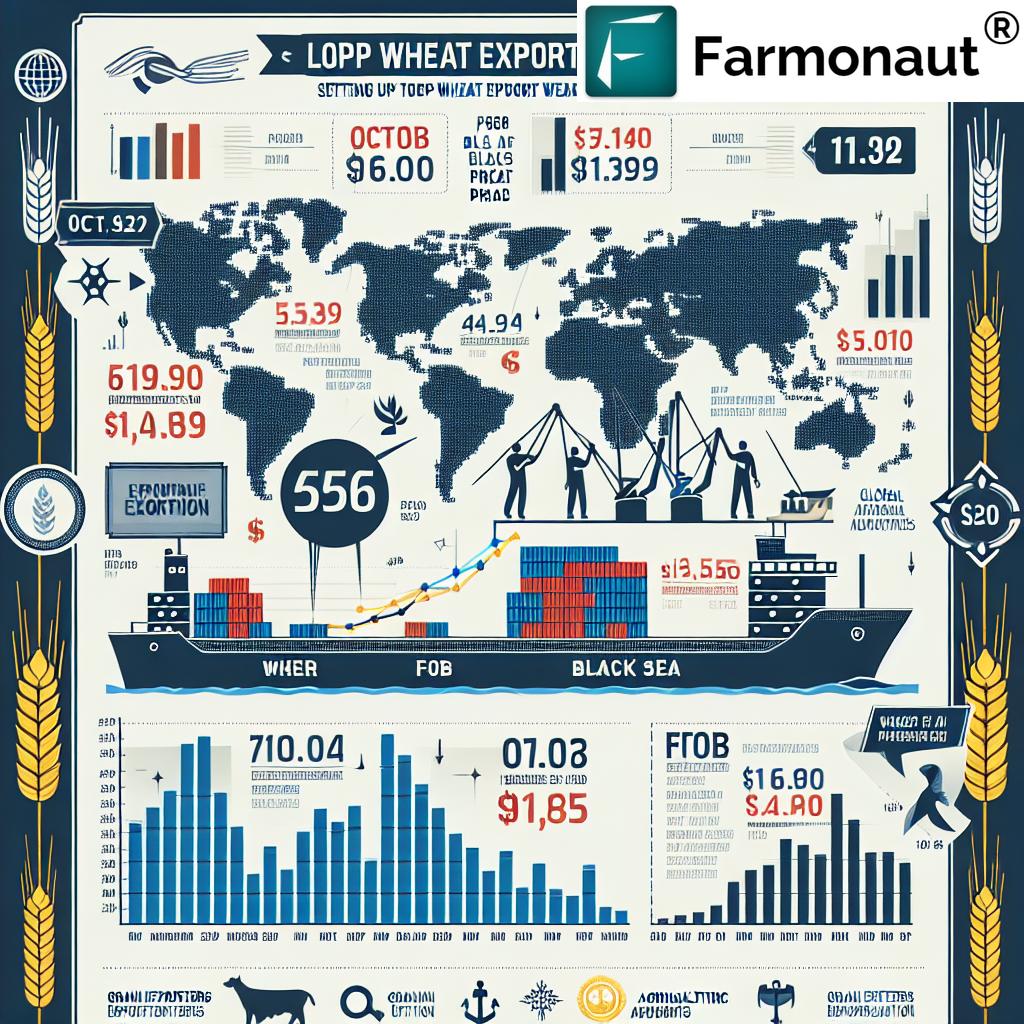Revolutionizing Global Trade: FDA’s Powerful $180K Boost to Enhance Food Safety Standards in Developing Economies

In a groundbreaking move set to transform international trade and global food safety, the United States Food and Drug Administration (FDA) has announced a significant contribution of $180,000 to the Standards and Trade Development Facility (STDF). This generous donation aims to revolutionize food safety standards in developing economies, paving the way for enhanced agricultural exports and improved market access.
Enhancing SPS Capacity in Developing Economies
The FDA’s contribution is a crucial step towards enhancing SPS capacity in developing economies. Sanitary and Phytosanitary (SPS) measures are essential for ensuring food safety and preventing the spread of plant and animal diseases. By supporting the STDF, the FDA is helping developing countries and least-developed countries (LDCs) meet international standards, thereby facilitating safe trade and opening doors to global markets.
- Improved implementation of sanitary and phytosanitary standards
- Enhanced ability to participate in global and regional value chains
- Increased export revenues and living standards in developing economies
This initiative aligns perfectly with Farmonaut’s mission to empower farmers worldwide. Our satellite-based API provides valuable data that can help farmers meet these stringent standards.
The STDF Partnership: A Catalyst for Agricultural Exports
The STDF partnership is a global multi-stakeholder initiative established by key international organizations, including the Food and Agriculture Organization (FAO), World Organisation for Animal Health (OIE), World Bank Group, World Health Organization (WHO), and the World Trade Organization (WTO). This partnership plays a pivotal role in improving international trade through food safety measures.

The STDF’s work is crucial in:
- Facilitating safe and inclusive trade
- Driving sustainable economic growth
- Contributing to food security and poverty reduction
- Supporting the United Nations Sustainable Development Goals
For farmers looking to leverage these opportunities, Farmonaut’s API Developer Docs provide valuable insights into how our technology can assist in meeting international standards.
FDA’s Contribution to Global Food Supply Safety
The FDA contribution to global food supply safety goes beyond monetary support. Since 2014, the FDA has contributed a total of $2,140,000 to the STDF, demonstrating a long-term commitment to enhancing food safety worldwide. This consistent support has been instrumental in:
- Building capacity in developing countries to implement SPS standards
- Improving human, animal, and plant health status globally
- Enhancing the ability of developing economies to access foreign markets
Kelly McCormick, who served as chair of the STDF Working Group in 2022, emphasized the amplification role of the STDF: “With all of the donor countries and member organizations pooling resources, expertise, and funds – the reach of what we are collectively able to do to build SPS capacity goes far beyond the sum of what we would have been able to accomplish as individual countries, agencies, or organizations.”
To stay updated on how these developments affect your farming practices, download the Farmonaut app:
Market Access for Developing Economies: A Game-Changer
One of the most significant outcomes of this initiative is improved market access for developing economies. By helping these countries meet international food safety standards, the FDA and STDF are opening doors to global markets that were previously inaccessible. This has far-reaching implications:
- Increased export opportunities for smallholder farmers
- Diversification of agricultural exports
- Improved economic resilience in developing countries
- Enhanced food security on a global scale
WTO Director-General Ngozi Okonjo-Iweala expressed gratitude for the United States’ support, stating, “This latest contribution reflects the continuing and long-term commitment by the United States to enhancing developing countries’ SPS capacities through science-based approaches, helping them meet international standards and access markets.”
Sanitary and Phytosanitary Standards in Trade: A Crucial Link
Sanitary and phytosanitary standards in trade are more than just regulatory requirements; they are the backbone of safe and sustainable global food trade. The FDA’s contribution to the STDF underscores the importance of these standards in:
- Ensuring food safety across international borders
- Preventing the spread of plant and animal diseases
- Building consumer confidence in imported food products
- Fostering fair competition in the global food market
H.E. María Pagán, ambassador and permanent representative to the WTO, highlighted the United States’ commitment to helping WTO members strengthen their ability to implement the SPS Agreement. She stated, “The renewal of FDA’s investment in the STDF continues the US commitment to ensuring that technical assistance is made available to developing countries, and I look forward to seeing the fruits of this partnership continue to ripen in the years to come.”
For farmers looking to leverage these opportunities and stay ahead of international standards, Farmonaut’s web app offers valuable insights:
The Ripple Effect: Beyond Food Safety
The impact of the FDA’s contribution extends far beyond just improving food safety standards. It creates a ripple effect that touches various aspects of global trade and development:
- Economic Growth: By facilitating trade, this initiative supports economic growth in developing countries, creating jobs and raising living standards.
- Sustainable Agriculture: The focus on SPS standards encourages sustainable agricultural practices, benefiting both farmers and the environment.
- Global Health: Improved food safety standards contribute to better public health outcomes worldwide.
- Innovation: The push for higher standards drives innovation in food production and safety technologies.
- Capacity Building: Knowledge transfer and training programs empower local experts in developing countries.
Conclusion: A Step Towards a Safer, More Inclusive Global Food Supply
The FDA’s $180,000 contribution to the STDF marks a significant milestone in the journey towards a safer and more inclusive global food supply. By enhancing SPS capacity in developing economies and improving international trade through food safety measures, this initiative paves the way for a more equitable and sustainable food system worldwide.
As we move forward, the collaboration between international organizations, government agencies, and innovative agricultural technology providers like Farmonaut will be crucial in realizing the full potential of this initiative. Together, we can create a world where safe, high-quality food is accessible to all, and where farmers from developing economies can participate fully in the global marketplace.
Stay informed about these developments and how they affect your farming practices by exploring Farmonaut’s comprehensive suite of tools and resources. Our commitment to empowering farmers aligns perfectly with the global effort to enhance food safety and facilitate international trade.
















